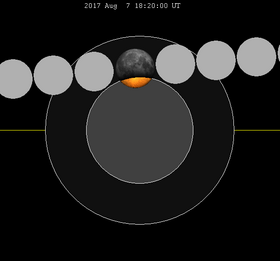Perseid Meteors on August 11th and 12th August, 2017:
If you are a late night sleeper, sky watcher or nature enthusiast, you may be in for a treat of natural fireworks of Perseid Meteors.
What are Perseid Meteors:
Perseid Meteors are produced by the debris of comet Swift-Tuttle left behind during its orbit around the sun, which takes about 130 years. When the earth comes close to the orbit of the comet, which happens once a year during July/August, the debris rams into the earth's atmosphere at a speed of 60km/sec to create bright steaks of light called Perseid Meteors.
When to watch:
In India one can watch the meteor on 11th and 12th August from the northern hemisphere from midnight to dawn though the moon's brightness cloudy sky can make it difficult.
Some facts about the Meteor:
Meteors do not reach the earth. They start burning at a distance of 120 kms above earth's surface before becoming ash at a distance of 60 kms above.
Normally there will be 90 to 100 meteors, but this year it could double that.
The meteors are named after that part of the constellation the meteors appear from.
The meteors travel at a speed of 1,35,000 miles per hr.




